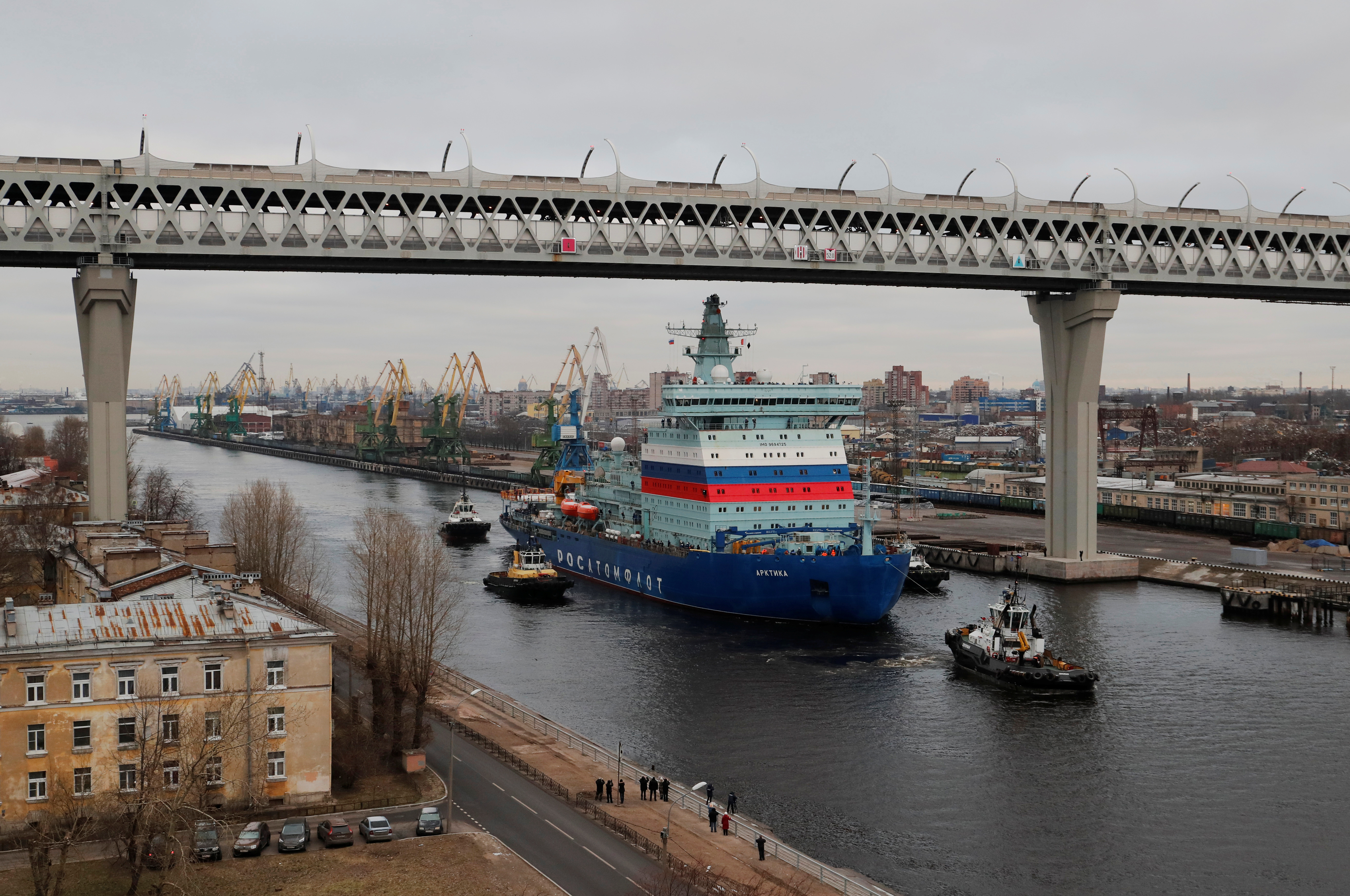The world’s largest nuclear icebreaker starts sea trials
The Arktika is the first of a class of five new nuclear-powered icebreakers, the most powerful in the world.

Painted in the Russia’s flag’s tricolor, the new Arktika sailed out to the Gulf of Finland on Thursday for a two-day test voyage.
During sea trials, the icebreaker will tests its ballast system, navigation equipment, anchors, electric installations as well as maneuvering characteristics, Rosatomflot says.
Arktika is the lead vessel in the new class of powerful nuclear-powered icebreakers of which five will be built.
Ships in the 173-meter-long and 34-meter-wide Project 22220 (LK60Ya) class are the largest and most powerful icebreakers in the world, providing 60 MW to the shafts. The two RITM-200 reactors on board has a thermal power-capacity of 175 MW each.
Head of Russia’s Northern Sea Route directorate, Vyacheslav Ruksha, told Kommersant on Wednesday that the first sea trials will happen without the reactors running.
“We didn’t have time to complete the launch [of the reactors]….. This first part will be with backup generators,” Ruksha said, but declined to comment on which problems are the reason for the delayed start-up of the icebreaker’s main power source, the reactors.
“The universal nuclear icebreaker of Project 22220 are equipped with the most advanced electric propulsion systems,” says Atomflot Director Mustafa Kashka in a news-update posted on the stats owned company’s portal.
A second, and longer, sea trail is planned for March-April before the icebreaker will sail around Scandinavia later this year to its homeport in Murmansk on Russia’s Barents Sea coast.
The main waters of operation will be from the Kara Sea and further east along the Northern Sea Route.
The two other icebreakers of the class that are under construction at the yard in St. Petersburg, the Ural and Sibir are expected to be commissioned in 2021 and 2022. Contracts for icebreaker No. 4 and 5 in the class are signed, but construction has not yet started.
The new Arktika icebreaker is named after the former ship with that name, which sailed from 1975 to 2008. On August 17th, 1977, the old Arktika became the first surface vessel to reach the North Pole.
You can read more about the new generation of nuclear-powered icebreakers and other maritime, seabed and onshore reactors that will come to the Russian Arctic from now and until 2035 in this scenario-report published by the Barents Observer.